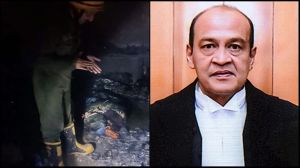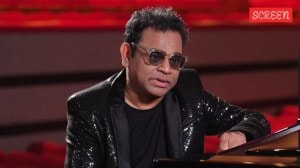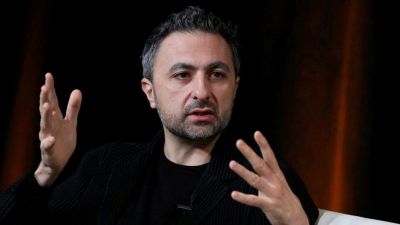Changing Narratives
Recognised by Granta among the most promising young authors,British authors Nadifa Mohamed and David Szalay talk about the rise of multicultural writing in literature.
When the British literary magazine and publisher Granta first released a list of the 20 most promising young British novelists in 1983,it seemed almost prescient. Many of them (Rose Tremain,Ian McEwan and Martin Amis) went on to become literary heavyweights. Granta continued to replicate the trick in succeeding decades as well,and literary circles have been watching the list carefully. So this year,when the new list named Nigerian-born Helen Oyeyemi,British-Chinese Xiaolu Guo,Zadie Smith who is part-Jamaican,and even Indian-origin author Sunjeev Sahota,alongside other international authors,it seemed to indicate a turning point for modern literature in the UK.
Its fantastic actually. I love the fact that even though my stories are based in Somalia,they are becoming part of the consciousness of the people in Britain, says Nadifa Mohamed,one of the chosen 20 in the 2013 list. She was in the city for an interaction at the British Library on Friday. Mohamed was born in Somalia and moved to the UK with her parents before the civil war broke out in her country. Her first novel,Black Mamba Boy,was based on her fathers childhood in Africa and Europe. Her second,The Orchard of Lost Souls,is set in Somalia on the eve of the civil war.
Like Mohamed,not only do the Granta 2013 authors hail from multicultural backgrounds,but even their stories and characters come from diverse regions. I think most fiction is connected to the author in some way. What I write is closely bound with my family history, says Mohamed.
Apart from the Granta list,multicultural literature is increasingly making its mark in the UK,and the world over,with several nominations and awards to going to such works. But does this point to a corresponding trend in the publishing industry and the literary world? Its definitely striking,and its difficult to believe that its a total coincidence. But itll be interesting to see whether it persists. Its fashion and taste to some extent, says David Szalay,another 2013 Granta author who participated in the interaction.
Szalay,who is part Hungarian and part Canadian,moved to the UK when he was about a year old. Despite his origins,Szalays novels (London and the South East,The Innocent and Spring) and his style are often described as very British. He does admit that his international parentage has played a part in shaping him
and his work.
I suppose there was always a slight gap,a sense of being an outsider with some thing as simple as my name Szalay,which
is a Hungarian name no one can ever pronounce (pronounced as saw-loy). Im talking about something very subtle but quite significant, he says.
Both the authors spoke about how they are enjoying the change in the industry not just as writers,but also as readers exploring stories from far-flung corners of the world. Mohamed mentions The Kite Runner (by Afghan-American Khaled Hosseini) and Half of a Yellow Sun (by Nigerian author Chimamanda Ngozi Adichie),while Szalay mentions Indian books such as The God of Small Things (Arundhati Roy) and The White Tiger (Aravind Adiga),which he enjoyed for the fresh and original views they gave of India.
Different types of books and books about different places are being published,so thats a big hurdle cleared right there, says Mohamed. However,theres still a long way to go before literature and how it is perceived become entirely multicultural.
She adds,I used to work in a library,and lots of librarians and probably book shop owners dont know what to do with books by non-Western people.







